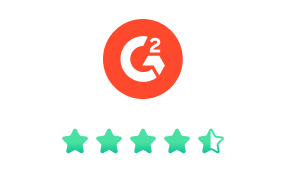CUSTOMER STORIES
Why IT Leaders Choose Veeam
When it comes to your business’ data protection needs, Veeam is the Modern Data Protection leader you can trust with more than 550,000 customers worldwide, including 67% of the Global 2000 companies.
Sorry, we do not have any stories under selected criteria
Check How Our Customers Are Rating Us
* Ratings and reviews 4.6/5 based on 1739 reviews as of Oct 07, 2025 in Enterprise Backup and Recovery Software Solutions. GARTNER is a registered trademark and service mark, and PEER INSIGHTS is a trademark and service mark, of Gartner, Inc. and/or its affiliates in the U.S. and internationally and are used herein with permission. All rights reserved. Gartner Peer Insights content consists of the opinions of individual end users based on their own experiences with the vendors listed on the platform, should not be construed as statements of fact, nor do they represent the views of Gartner or its affiliates. Gartner does not endorse any vendor, product or service depicted in this content nor makes any warranties, expressed or implied, with respect to this content, about its accuracy or completeness, including any warranties of merchantability or fitness for a particular purpose.


